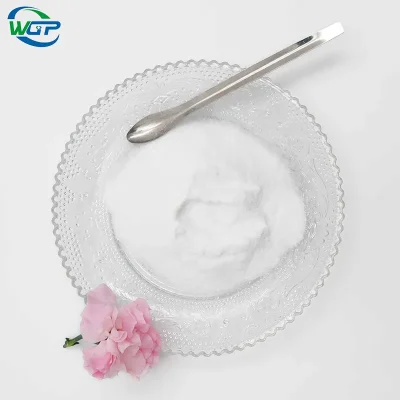Prilocaine Hydrochloride
CAS:1786-81-8
MF: C13H21ClN2O
Prilocaine hydrochloride (Citanest) is an amide anesthetic whose onset of action is slightly longer than that of lidocaine; its duration of action is comparable. Prilocaine is 40% less toxic acutely than lidocaine, making it especially suitable for regional anesthetic techniques.
- Description
- Additional information
Description
Prilocaine HCL CAS 1786-81-8 Product Information
| Product Name: | Prilocaine Hydrochloride |
| Synonyms: | N-(2-Methylphenyl)-2-(propylamino)propanamide Hydrochloride; 2-(Propylamino)-o-propionotoluidide Hydrochloride; Citanest Hydrochloride; L 67; L 67 Hydrochloride; Prilocaine Chloride; Xylonest; |
| CAS NO: | 1786-81-8 |
| Molecular Weight: | 256.77 |
| Molecular Formula: | C13H21ClN2O |
| Appearance: | White to Off-White Solid |
| Melting point: | 168-170°C |
| Storage: | Refrigerator |
| Solubility: | DMSO (Slightly), Methanol (Slightly) |
| Applications: | Prilocaine is a local anesthetic of the amino amide type. Prilocaine is often used in dentistry.Prilocaine is also often combined with lidocaine as a preparation for dermal anesthesia (lidocaine/prilocaine or EMLA), for treatment of conditions like paresthesia. |
prilocaine hcl injection pregnancy
Prilocaine hydrochloride is a local anesthetic commonly used for pain relief during various medical procedures. When it comes to the use of prilocaine HCl injection during pregnancy, it is essential to consider the potential risks and benefits.
Limited data is available on the use of prilocaine HCl injection specifically in pregnant women. The use of local anesthetics during pregnancy, including prilocaine, is generally considered safe when used as directed and in appropriate doses. Local anesthetics are typically administered in localized areas and do not pose significant systemic risks to the fetus.
However, as with any medical intervention during pregnancy, it is essential to weigh the potential benefits against the potential risks. It is recommended to consult with a healthcare professional, such as an obstetrician or anesthesiologist, who can assess your specific situation and provide personalized advice.
The healthcare professional will consider factors such as the stage of pregnancy, the necessity of the procedure, the potential alternative options, and the potential risks associated with the use of prilocaine HCl injection. They will help you make an informed decision based on your individual circumstances.
prilocaine hcl injection
Prilocaine injection is used to numb the mouth before a dental procedure. This medicine is to be given by or under the direct supervision of your dentist.
prilocaine hcl sds/prilocaine hcl msds
| WGK Germany | 3 |
| RTECS | UG5775000 |
| HS Code | 29242990 |
| Toxicity | man,LDLo,parenteral,12343ug/kg/1H (12.343mg/kg),BLOOD: HEMORRHAGE,Journal of Analytical Toxicology. Vol. 10, Pg. 75, 1986. |
how does prilocaine work
prilocaine is a local anesthetics. This medications are absorbed through your skin, where they work on your nerves to lower how much pain you feel. By applying prilocaine onto an area of your skin, it causes a loss of feeling where you apply it.
prilocaine hcl formula
C13H21ClN2O
prilocaine hcl mol wt
256.772
Additional information
| Color | White |
|---|---|
| Form | Powder |












Reviews
There are no reviews yet.